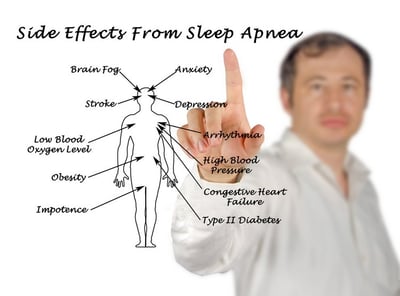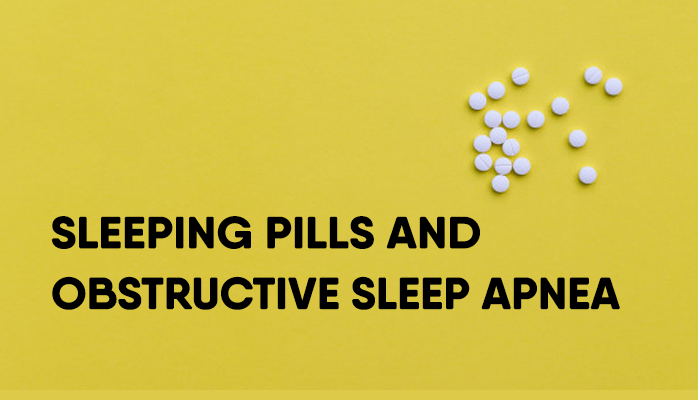What Exactly is a Sleeping Pill
Sleeping pills are known as sedative hypnotics. They relax the mind and body in order to help one go to sleep. Those who struggle with getting a good night's sleep will often take them. Examples of sleeping medications include:
- Prescription medication, like ambien, Klonopin, etc.
- Over-the-counter aids like Benadryl, Tylenol-PM, and Advil-PM
- Antihistamines and antidepressants
For those with insomnia, sleeping aids can feel like a lifeline; almost as if they could never sleep without them. Although they are quite effective, they also come with hidden dangers. Specifically, individuals with untreated sleep apnea SHOULD NOT take sleeping aids. Sleep specialist Dr. Thomas Winkler said, “For my patients with untreated sleep apnea, I tell them [taking sleeping pills] is a bad idea.”
What Causes Obstructive Sleep Apnea

Obstructive sleep apnea is caused when tissues and muscles in the back of the throat relax during exhalation and blocks the airway. Breathing pauses until the person subconsciously wakes up to begin breathing again. There is a visual depiction of sleep apnea here.
Sleeping pills relax the entire body, including those same tissues and muscles. Therefore they can either trigger or worsen OSA.
Who is At Risk for Obstructive Sleep Apnea from Sleep Pills
People who are at risk for obstructive sleep apnea already have existing risk factors (listed below) coupled with other sleeping disorders that disrupt sleep cycles, such as insomnia and circadian rhythm disorders. Some other risk factors for obstructive sleep apnea are:
- Being overweight or obese
- Having a thick or large neck
- Having smaller airways in your throat, nose or mouth.
- Having enlarged tonsils
- Having a deviated septum
- Having a large tongue
- Having diabetes
- Genetics/family history
- Having certain medical conditions that cause sleep apnea (rare)
- Age/Sex (older men are most common demographic for sleep apnea)
- Sleeping on your back
- Drinking excess alcohol
If you or a loved one struggle with getting a good night's rest, then please click the orange button below to take a free online sleep test and talk with one of our sleep health professionals.


